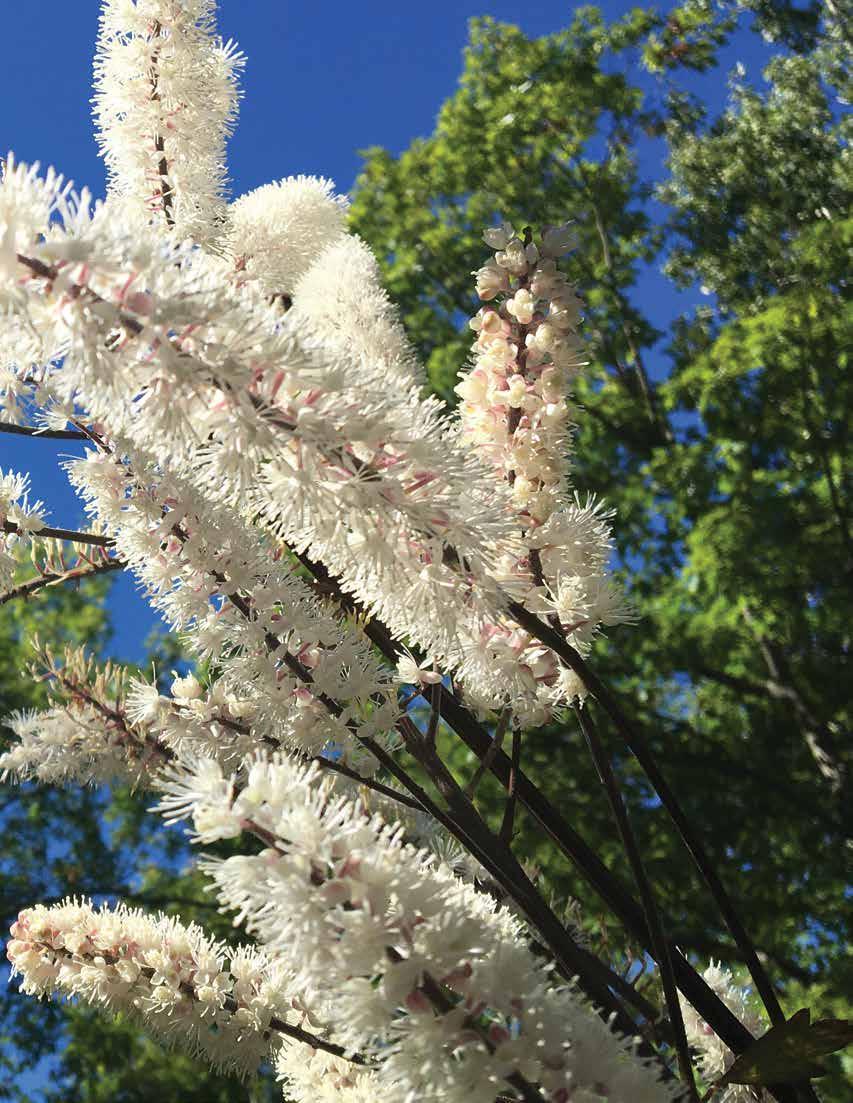
3 minute read
Looking Ahead: An Eye on Our Future
from 2021 Fall Ridgeline
by Merck Forest

by Rob Terry, Executive Director
In a recent workshop, I had the pleasure of exploring habitat features and landscape level conservation with a dozen enthusiastic high school students. Reflecting back on a fantastic day of exploration and discovery, there is a particular moment that stands out. At the outset of our conversation I asked students to indicate, by show of hands, how many had learned about the Amazon in grade school—12 hands shot up. I asked again about the African Savannah, and again 12 hands stretched towards the sky. I then inquired about the Northern Appalachian-Acadian Bioregion (our home ecosystem and a habitat of global significance). There wasn’t even a twitch.
I was reminded of a similar moment that I experienced early in my career. At the time I was teaching with an experiential outdoor education program embedded in a private high school in the District of Columbia. It was late fall, and I was out on a pre-season run with our varsity climbing team, many of whom had recently returned from a two-week sea kayaking trip in the Florida Everglades. We were being led by our team captains, who had gotten themselves turned around and were confused about how to get back to campus. I suggested they use the navigational strategies that we learned on trip—starting with finding north and identifying landmarks. I’ll never forget the response, “we’re in the city, there’s no north here.”
I don’t remember what I said, but I know we made it home. Although these two conversations were separated by nearly 25-years of teaching in the outdoors, they are reflective of a pattern that I’ve noticed. Too often, nature is presented as a mythical other world, something separate; in this construct we must leave home to go out into wilderness to experience the natural world. At Merck Forest & Farmland Center we work hard to dissolve this misperception. Through summer camps, workshops, hiking trails, cabins, demonstration farm and forestry work, our Mettawee satellite campus, and a host of other programs and projects, we strive to help visitors and community members understand that we are all an integral part of the natural world, inexorably tied to its systems and processes. This is as true on our back porches and in our driveways as it is deep in the aforementioned Amazon.
This subtle shift in understanding has never been more important than it is today. The feedback loop is tight. Global temperature increases and a widespread pandemic are here, yet there remains hope. Although stressed, the foundational natural processes that make our planet habitable for us and the species with whom we share this epoch are intact. However, to ensure that they remain so will require global behavior change on an unprecedented scale. It is our firm belief that Merck Forest & Farmland Center, along with countless organizations like it around the world, are positioned to help facilitate the shift in perspective that will be required to make that change. To do that, however, will require us to rethink our work and the way we engage our constituents. Historically, organizations like Merck Forest have often focused on providing a connection to the natural world that serves as something of a respite from the hustle and bustle of modern life—a salve relieving the symptoms of chronic traffic, crowded sidewalks, blaring sirens, etc. In that framework, visitors pop in for a half-day to a weekend, unplug, let the splendor of the natural world replenish their souls, and return ready to take on their daily commute. Now that the splendor of the natural world is facing an imminent threat, it is critical that we reimagine our work, lest we risk becoming something akin to the band that played on while the Titanic slipped beneath the icy waters of the North Atlantic. In reality, we would be something worse. The band that played while the Titanic sank was in no position to help the ship stay afloat, and instead used music to help calm passengers and maintain order. Here and now, however, conditions are different. Our vessel is not yet lost, and we must all work together to keep it on the surface. Merck Forest, and similar organizations, must therefore stand on the front line of that effort and help visitors understand that the natural processes on which we depend are so much more than window dressing for the soul.
It is with this objective in mind that we have crafted a renewed strategic plan, centered on a set of core objectives that include: invigorating the working landscape, bolstering protection of the landscape’s natural systems, deepening connections with MFFC visitors and surrounding communities, and championing individual and institutional climate smart action. With these objectives as the starting point, we have set out to develop a ten-year master plan that will define what happens at Merck Forest in four core areas: forest management, farming, educational programs, and fleet & facilities. Through this work, our intention is to continue to improve access to our farming and forestry work, enhance visitor experience, and inspire deeper thought and action about our place in the natural world and how our actions can help secure a more sustainable future.
As we dig deeper into this effort, we’ll need your help! Through surveys, seminars, and community meetings, our intention is to provide a variety of opportunities for our visitors, members, partners and neighbors to share thoughts and ideas while providing feedback on our plans. Thanks, in advance, for all of your help in this effort. Together we can!








